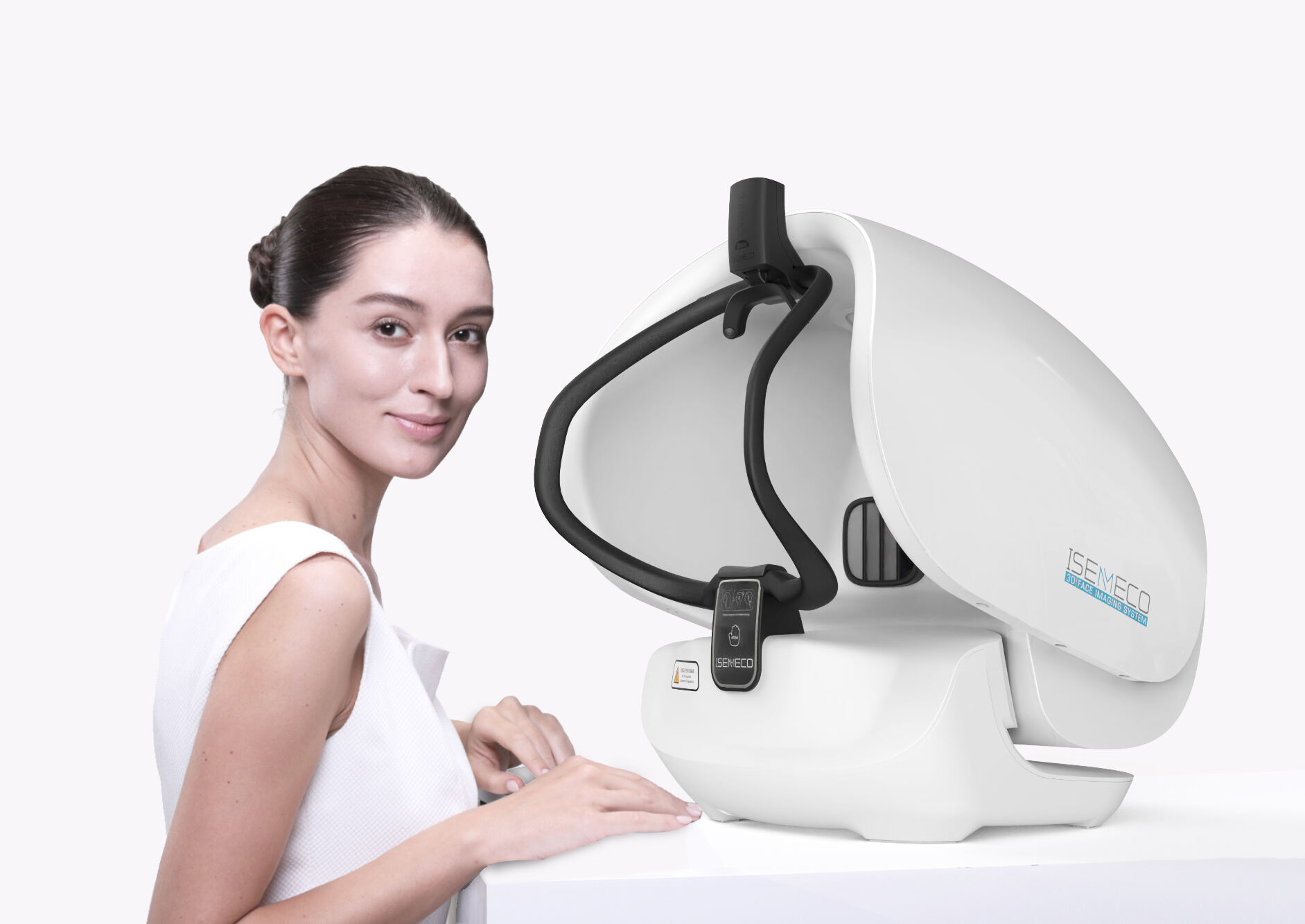
Healthcare is evolving toward a fundamental truth: No two people are the same, so their care shouldn’t be either. In dermatology and aesthetic medicine, this means moving beyond generic treatments to plans that account for each patient’s unique biology, lifestyle, and environment. MEICET is leading this shift, merging artificial intelligence with advanced imaging to create personalized skin health solutions that honor individuality—ensuring care is as unique as the patients receiving it.
The Rise of Personalized Skin Care
Personalized dermatology is about understanding the “why” behind skin concerns. Two patients with similar-looking dark spots might have entirely different causes: One could be due to years of unprotected sun exposure, the other to hormonal changes during pregnancy or post-inflammatory responses from acne. Traditional diagnostics, which rely on visual checks and patient history, often miss these nuances, leading to one-size-fits-all treatments that may not work—or could even worsen the issue.
MEICET’s skin analyzers, like the Pro-A and MC10, fill this gap by creating detailed, data-driven profiles of each patient’s skin. These profiles go beyond surface observations to capture the unique interplay of factors influencing skin health, from structural changes in the dermis to subtle shifts in pigment production.
AI and Multi-Spectral Imaging: The Foundation of Personalization
At the core of MEICET’s approach is the fusion of AI and multi-spectral imaging. Multi-spectral imaging captures skin data across different light wavelengths, revealing layers of information that would otherwise remain hidden:
- UV Fluorescence Imaging uncovers hidden melanin and early sun damage, invisible to the naked eye. This is particularly valuable for patients with darker skin tones, where surface pigment changes may be less obvious but subsurface damage can still occur.
- Cross-Polarized Light detects inflammation or vascular issues, critical for conditions like rosacea or post-procedure healing. It can distinguish between temporary redness from irritation and persistent redness from underlying capillary damage, guiding appropriate treatment.
- Visible Light Imaging captures texture, pores, and lines, guiding treatments like microneedling or chemical peels. It can map exactly where texture irregularities are concentrated, ensuring treatments are focused on the areas that matter most to the patient.
AI then processes this multi-layered data through algorithms trained on diverse skin types and conditions, turning it into objective insights—such as patterns of pigment distribution, wrinkle depth, or barrier integrity. For example, the Pro-A might identify that a patient’s “dullness” stems from uneven texture in specific areas (captured via visible light) paired with mild dehydration (detected through changes in light reflection). This leads to a plan that combines gentle exfoliation to improve texture with a hydrating serum tailored to their skin’s needs, rather than a generic “brightening” product.
Integrating Lifestyle, Environment, and Biology
True personalization requires looking beyond the skin itself. MEICET’s platforms synthesize multiple data streams to create holistic plans:
- Environmental Factors: UV exposure, pollution, and climate significantly impact skin health. MEICET’s tools integrate local environmental data to tailor recommendations—say, suggesting extra antioxidant protection for patients in high-pollution urban areas or emphasizing humectants for those in dry, cold climates.
- Lifestyle Habits: Patient-shared information about diet, stress, or sleep helps shape care. A patient with acne linked to inflammatory foods might receive nutrition guidance (such as reducing processed sugars) alongside topical treatments. Someone with poor sleep quality, which can exacerbate skin aging, might get recommendations for stress-reducing practices (like meditation) alongside collagen-boosting treatments.
- Physiological Markers: Scans assess hydration, pH balance, and barrier function, ensuring treatments support the skin’s natural resilience. A patient with dryness due to a compromised barrier (detected via changes in transepidermal water loss) might get a plan focused on repairing it with ceramides and fatty acids, not just adding moisture with hyaluronic acid.
Adapting Care Over Time
Personalization isn’t a one-time event—it’s an ongoing process. MEICET’s technology lets clinicians monitor how skin responds to treatments through follow-up scans. If a patient’s skin reacts unexpectedly to a chemical peel—say, showing increased sensitivity in the T-zone—the clinician can adjust home care recommendations (switching to a gentler cleanser) or modify future treatment intensity (using a lower concentration of acid) based on real-time data. This adaptability ensures the plan evolves with the patient’s needs, whether due to seasonal changes, lifestyle shifts, or natural aging.
Ethics and Inclusivity
MEICET ensures its AI tools are responsible and fair:
- Data Protection: Patient information is encrypted and secure, meeting global privacy standards to protect sensitive skin data.
- Clinician Oversight: AI recommendations are always reviewed by clinicians, who retain final decision-making power. The technology augments, rather than replaces, clinical judgment.
- Diverse Data: Algorithms are trained on a wide range of skin types, ethnicities, and tones, ensuring accuracy for everyone. This avoids bias and ensures that patients of all backgrounds receive equally precise care.
Conclusion
MEICET’s blend of AI and personalized medicine is transforming skin health care. By turning complex data into tailored, patient-friendly insights, these tools help clinicians deliver care that’s effective, empathetic, and truly individual.
Ready to embrace personalized skin health? Visit www.isemeco.com to learn how MEICET can transform your practice.
 EN
EN
 AR
AR
 BG
BG
 HR
HR
 CS
CS
 DA
DA
 NL
NL
 FI
FI
 FR
FR
 DE
DE
 EL
EL
 HI
HI
 IT
IT
 JA
JA
 KO
KO
 NO
NO
 PL
PL
 PT
PT
 RO
RO
 RU
RU
 ES
ES
 SV
SV
 TL
TL
 IW
IW
 ID
ID
 SR
SR
 SK
SK
 SL
SL
 UK
UK
 VI
VI
 SQ
SQ
 HU
HU
 TH
TH
 TR
TR
 FA
FA
 AF
AF
 MS
MS
 UR
UR
 BN
BN
 LA
LA

